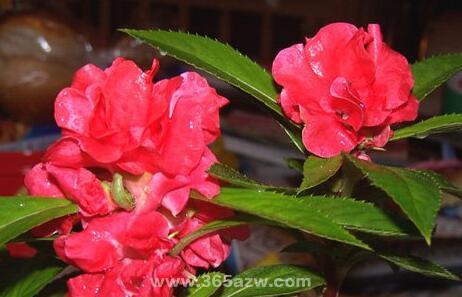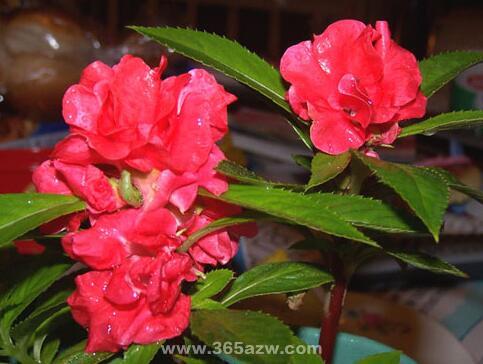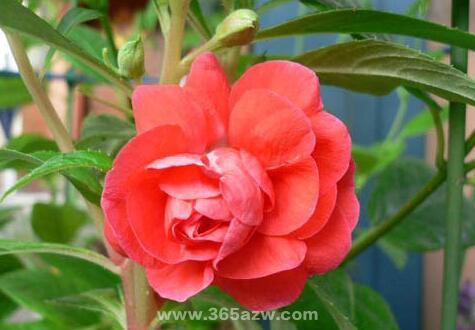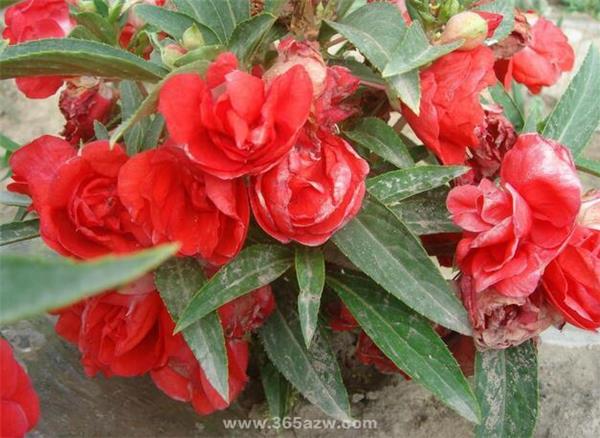Culture method of Camellia Impatiens
The flowers of camellia impatiens are gorgeous, and the relatively long flowering period after flowering has a certain ornamental value. This paper summarizes the breeding methods of camellia impatiens, which can be used as a reference for friends who want to plant.

Morphological characteristics of Camellia Impatiens
Camellia impatiens is an annual or biennial or perennial herbaceous flower, about 25-50 cm high, double large flower, bright color, flower head terminal, shaped like camellia. Stem smooth, crisp and succulent, nodes often dilated, without stipules, generally alternate and opposite, upper leaves often whorled, glands between petioles, flowers bisexual, zygomorphic, solitary in leaf axils or slightly clustered, sepals 3, sparse 5, lateral 2 small, green, lower one large, petal-shaped, saccate, extending downward into a spur; petals 5, or 3 segments due to 2 pairs. The capsule is 5-valved when ripe, and the flap rotates spirally to eject the seed.
The specific planting methods are as follows:
The sowing of camellia impatiens can be carried out in all four seasons, and it can be sowed or sowed on demand. 128hole trays are used for sowing, and the optimum sowing temperature is about 20 ℃, and seedlings emerge in about one week. The seeding seedlings were transplanted for the first time when the height was 5 cm, moved in a nutrition bowl of 8 cm, and planted in a basin of 15 cm at about 12 cm. The soil was mixed with peat soil 2, vermiculite or river sand 1 and slag 1, and an appropriate amount of sheep dung could be added as base fertilizer.

For individual species and varieties with poor branching, such as New Guinea impatiens, they should be pinched properly at seedling stage. High temperature drying will make the impatiens leaves thicker and not stretch, the internodes become shorter, and when the plant shape is seriously affected, it will stop growing, so it is necessary to keep the environment cool and shade properly over the summer, the strong sunlight will burn the leaves, and if the light is too weak, the plants will grow too much, the leaves will become thinner and the leaves will be light green.
In order to use flowers for National Day holiday, in addition to choosing more heat-resistant varieties, you can also sow seeds in June, and put the seedlings in the mountains about 800 meters above sea level in July and August to spend the summer. Impatiens need plenty of light in winter and spring, so they don't need shade.
During the growth period to ensure the supply of water, especially in summer watering should be timely and adequate, keep the basin soil moist but not stagnant water, basin soil dry plants are very easy to wilt, when wilting, watering is easy to cause rot. Stagnant water is apt to rot. Maintain a certain amount of air humidity throughout the growing season, and spray water to the leaves and the ground in summer to increase air humidity. In order to control plant height and plant shape, in addition to applying more nitrogen fertilizer in the early stage, the application of nitrogen fertilizer should be controlled before and after flowering.
The cuttings of camellias and impatiens can also be carried out all year round. Select strong branches, cut off about 8 ℃ as cuttings, keep the temperature at 20 ℃, take root for about 20 days, and water cuttings in summer are also easy to root.

The Flower language of Camellia Impatiens
The beautiful posture and delicate flowers of camellia impatiens make it very popular with people. Friends who like to plant flowers and potted plants should have camellia impatiens in their homes. When it comes to the flower language of Camellia Impatiens, we have to talk about the peculiar seed shell of Camellia Impatiens. When the seeds of Camellia Impatiens are almost ripe, if you gently touch it, its seed shell will quickly open and spill the seeds. It is this strange seed and the cold beauty of Camellia Impatiens.

This is the end of the introduction of camellia impatiens culture. I hope you can enjoy today's content.
Related
- Wuhan Hospital Iron Tree Blooming Result Was Instantly Frightened by the Gardener Master
- Which variety of camellia is the most fragrant and best? Which one do you like best?
- What is the small blue coat, the breeding methods and matters needing attention of the succulent plant
- Dormancy time and maintenance management of succulent plants during dormancy
- Minas succulent how to raise, Minas succulent plant pictures
- What are the varieties of winter succulent plants
- How to raise succulent plants in twelve rolls? let's take a look at some experience of breeding twelve rolls.
- Attention should be paid to water control for succulent plants during dormant period (winter and summer)
- Watering experience of twelve rolls of succulent plants
- Techniques for fertilizing succulent plants. An article will let you know how to fertilize succulent plants.



